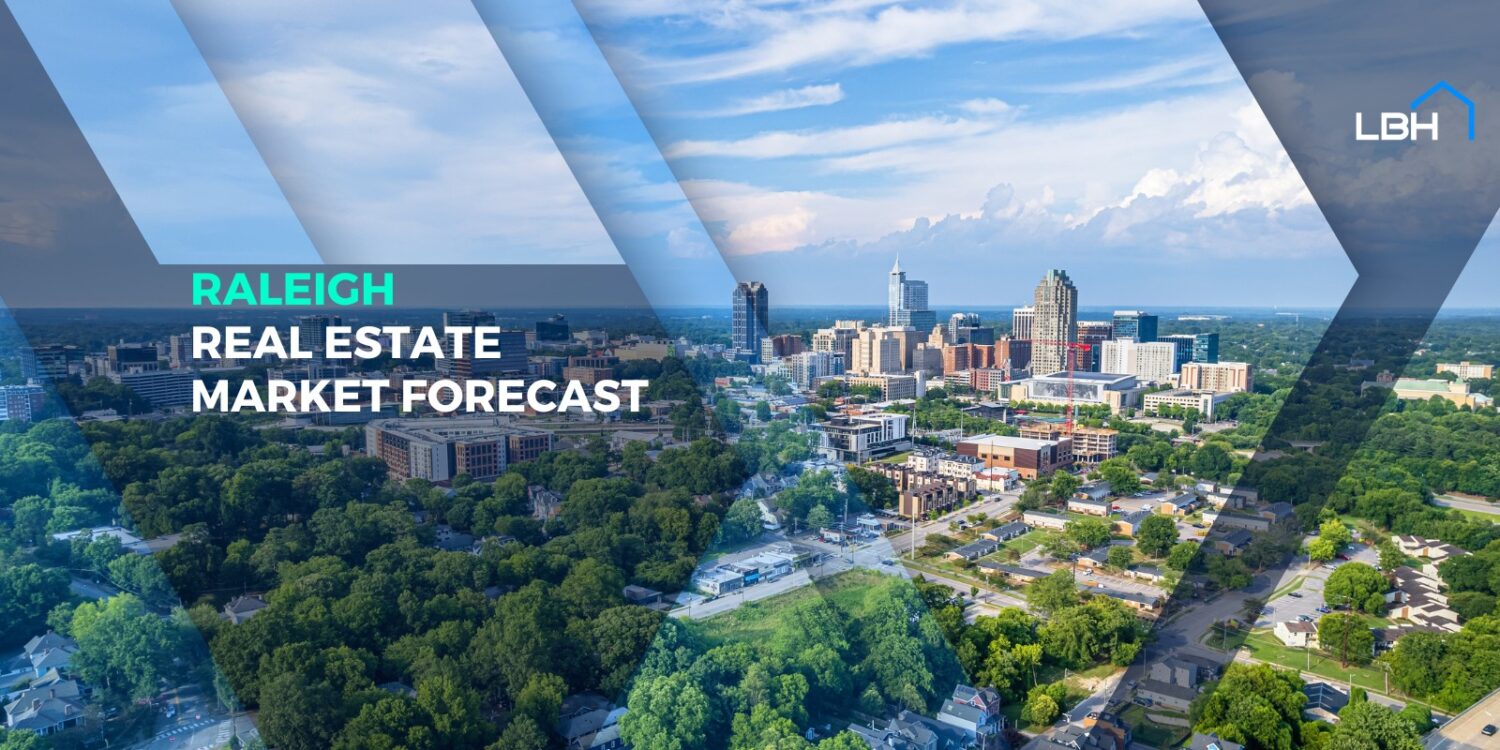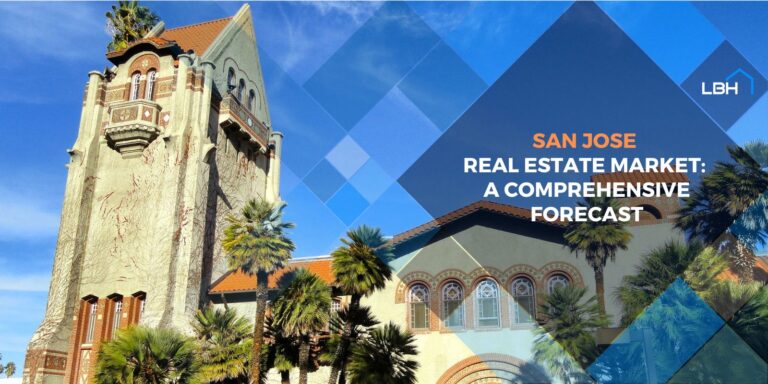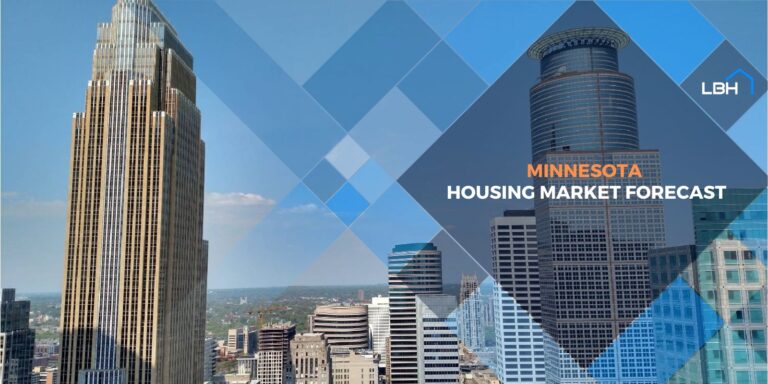Raleigh is a prime destination in North Carolina, particularly within the coveted Research Triangle area. Despite the prevailing real estate difficulties witnessed elsewhere, the Raleigh housing market has emerged as a standout performer in 2023.
According to rankings released by U.S. News and World Report, Raleigh clinched the third spot as the hottest housing market nationwide. Neighboring city Durham shares the limelight, securing an impressive second, while Charlotte took the fourth position on this esteemed list.
Whether one seeks a residence in Downtown Raleigh, its surrounding suburbs, or the charming North Raleigh, the housing options cater to diverse needs, offering an affordable urban lifestyle.
Overview of Raleigh Real Estate Market
Raleigh, the capital of North Carolina, holds a distinct allure for prospective residents. It forms an integral part of the renowned Research Triangle, joining forces with Durham and Chapel Hill.
This vibrant region is home to three esteemed universities — Duke University, North Carolina State University, and University of North Carolina — as well as several cutting-edge tech companies. Alongside its academic and technological prowess, Raleigh boasts a mild climate and convenient access to North Carolina’s picturesque beaches and mountains.
Moreover, North Carolina stands out for its remarkably reasonable cost of living. The state property tax set at 0.7% and modest state sales tax rate of 4.75% contribute to this appealing affordability.
For anyone contemplating real estate transactions in this sought-after locale, here’s a comprehensive guide to navigating the housing market in Raleigh.
Current Market Trends and Statistics
Here’s how the Raleigh real estate market looks today:
Raleigh boasts a total of 75 distinct neighborhoods. Among these, North Ridge stands out as the most expensive neighborhood, with a median listing home price of $2.7 million, according to data from Realtor.
On the other end of the spectrum, Avent West takes the spot as the most affordable neighborhood, with homes having a median listing price of $279.9K.
How Competitive Is the Raleigh Housing Market?
Based on Redfin’s findings, the housing scene in Raleigh appears somewhat competitive.
On average, homes in Raleigh typically sell for approximately 1% below their listed price and go pending in about 39 days. Hot properties often sell for roughly 1% above their listed price and take approximately 15 days to be sold.
As of November 2023, homes are fetching about two offers and getting sold in around 42 days, up from 40 days in November 2022.
The Raleigh median home price hit $395,000 in November 2023, down 3.45% from the previous year. Looking at the price per square foot, it’s sitting at $223, showing a modest increase of 1.8% compared to last year.
Median Sale Prices and Comparisons
In November 2023, 387 homes were sold, marking a decrease from the 419 homes sold during the same period last year.
When looking at the figures between 2023 and 2022, the median house price in Raleigh stayed fairly steady, unlike the fluctuating prices in the previous years.
According to the Emerging Trends in Real Estate 2024 report by PricewaterhouseCoopers, Raleigh’s housing market mirrors broader market patterns. People’s choices about where to live, driven by factors like quality of life and affordability, significantly impact this market. Raleigh continues to be a favored relocation spot, earning it higher rankings.
Although homes are selling above their listing price this year, the year-over-year change is notable but less than what was observed previously. Still, there’s an upward trend favoring sellers, indicating positive shifts in the market dynamics.
Are Raleigh Home Prices Dropping in 2024?
Based on the most recent data, there’s no sign of a significant decline in Raleigh home prices in 2024. While markets can be unpredictable, Raleigh’s housing prices have demonstrated strength and a consistently upward trend over the past few months.
2024 Market Forecast
Raleigh has undergone substantial expansion in recent years, a trajectory that is anticipated to persist into 2024.
While there has been a slowdown in buyer demand, leading to an extended duration of homes remaining on the market compared to the previous year, forecasts indicate an improvement in 2024.
Based on a census data study, Raleigh presently stands as one of the nation’s fastest-growing cities. This robust growth is expected to uphold the strength of the Raleigh, NC, housing market well into the next year.
Noteworthy is Raleigh’s ability to maintain affordability and competitiveness, even in the face of increased mortgage rates, with indications pointing toward sustained stability in this regard.
Looking ahead to 2024, Raleigh’s housing and real estate market is poised to maintain a comparable trajectory, with projected growth fluctuation exerting a minor impact on the overall landscape.
Given the inherent competitiveness of Raleigh’s real estate scene, navigating transactions can pose challenges for both sellers and buyers.
Nevertheless, there are no indicators pointing towards an imminent housing market Raleigh crash in the upcoming year.
Remaining vigilant and attuned to dynamics in the housing market in North Carolina is pivotal for readiness in the face of potential changes. The real estate landscape is inherently variable and is subject to various factors.
Staying informed about local and overarching market developments is crucial to understanding the evolving dynamics that shape your real estate environment.
Here’s more of what you need to know about the housing market in Raleigh, NC, in 2024:
Impact of Interest Rates on Affordability
The impact of mortgage interest rates on the U.S. real estate market has been widely acknowledged, and Raleigh reflects this trend.
While certain areas within the city offer affordability, it’s essential to recognize that Raleigh also boasts some of North Carolina’s most expensive neighborhoods.
The median home values have witnessed a decline across the city, a measure taken to sustain a vibrant and competitive market.
Yet, the question lingers: does this adjustment adequately address the concerns surrounding affordability for the average homebuyer?
Presently, segments of Raleigh maintain their status as both affordable and competitive despite the surge in mortgage rates, with indications pointing towards this stability continuing.
Nonetheless, intermittent months have shown slight year-over-year increases in Raleigh median home price, signaling some fluctuation within the market.
Inventory Levels
Raleigh holds the status of a seller’s market due to the prevailing scenario where demand eclipses the available supply, although the equilibrium leans more towards neutrality compared to several major cities.
In early 2023, there was a surge in newly approved housing permits in the city, reaching a high not seen in a decade, sparking anticipation that buyers might gain the upper hand.
However, these figures have seen a substantial decline, leading to a slowdown in inventory expansion.
It appears that individuals are exercising caution in land purchases amidst elevated mortgage investment rates, although this sentiment might shift if these rates decrease, a prediction echoed by some experts.
The anticipated stabilization of interest rates is poised to trigger an influx of homes hitting the market in the upcoming year.
The volatility in interest rates has caused many individuals to adopt a wait-and-see approach.
As the realization sets in that these rates are likely to sustain their elevated levels or as people face the necessity of relocation due to work or living circumstances, there’s an expectation that more homeowners will decide to list their properties for sale.
The overall outlook for the Raleigh market indicates a seller’s market persisting in the foreseeable future, albeit without an alarming imbalance that poses significant risks.
Is the Raleigh Real Estate Market Likely to Crash in 2024?
Experts maintain a reassuring stance regarding the housing market in Raleigh, dismissing concerns about an impending crash.
The city’s robust economy, continual influx of individuals seeking job prospects, and relatively stable inventory differentiate it favorably from other major urban centers.
While Raleigh leans towards favoring sellers, it remains a competitive arena for both buyers and sellers.
Most homes are selling close to their listed prices, which have moderated somewhat year-over-year, and transactions are occurring at a reasonably swift pace, albeit slower than in previous periods.
Notably, indications of a Raleigh housing bubble are absent, and there’s little likelihood of one forming in the current landscape.
While unforeseen events can alter circumstances, given the global economic backdrop, this isn’t an immediate cause for excessive concern among potential investors.
Home Values to Stay Flat
Zillow’s projections indicate a probable stabilization in home values, with a forecasted marginal decline in prices nationwide despite an increase in supply.
This shift could potentially grant buyers an extended window to accumulate savings following a phase of rapid price hikes in recent years.
Simultaneously, the persistently high interest rates are likely to sustain the allure of renting for many individuals, given the comparative attractiveness of rental options.
Observers highlight an ongoing buyer interest while awaiting an upsurge in available homes, a factor that will uphold stability in Raleigh home prices.
An influx of inventory would heighten buyer enthusiasm, emphasizing a considerable pool of potential buyers and sellers presently in a holding pattern due to the limited options available in the market.
Seller’s Concession to Heighten
Negotiation dynamics have reemerged in the housing landscape after a notable absence in recent years, signaling a shift in seller attitudes towards accommodating concessions for buyers.
In Raleigh, there’s a discernible trend: according to a Redfin survey, between August and October, a significant number of sellers offered concessions to buyers, such as funds for repairs or assistance with closing costs.
Real estate analysts have observed a marked increase in sellers’ readiness to engage in negotiations. This shift contrasts notably with the scenario in 2022, marked by a flurry of multiple offers on homes, indicating a departure from that trend towards more flexible seller attitudes.
Investment Opportunities in Raleigh Real Estate
Raleigh, NC, has witnessed a significant surge in real estate investment lately. Fueled by a robust economy and a growing populace, the city has emerged as a prime destination for investors eyeing the flourishing real estate landscape.
Getting a deeper understanding of Raleigh’s real estate market holds immense importance for investors aiming to secure profitable ventures.
Notably, the rental market for single-family homes stands strong, witnessing a median rent of $1,683 per month as of December 2023
Furthermore, property values in Raleigh have risen significantly over the last five years, establishing it as an appealing hub for both residential and commercial real estate ventures.
Investors have shown a strong preference for residential properties, seeing these as key assets to grow passive income and long-term wealth.
These are the types of properties prevalent in Raleigh:
- Single-family homes: First-time investors often favor single-family homes because of their manageable costs and simpler upkeep. Raleigh offers a diverse array of these properties across different neighborhoods, spanning from older homes requiring renovation to newer residences nestled in upscale communities.
- Multi-family homes: For investors seeking higher income potential, multi-family homes like duplexes, triplexes, and apartment buildings are particularly appealing. The advantage lies in generating income from multiple units, providing a buffer against vacancies and other associated expenses.
- Office buildings: The office space sector has faced notable challenges, highlighted by a record-high office vacancy rate driven by negative net absorption and increased supply. Despite these trends, Raleigh’s commercial real estate market maintains its status as a sought-after destination. Fueled by a burgeoning tech industry and a resilient economy, it stands out amidst these broader challenges.
- Retail spaces: Retail investments in Raleigh include options like strip malls and expansive shopping centers. To get the greatest bang for your buck, consider factors like location, tenant diversity, and foot traffic. For instance, retail properties situated in bustling zones like malls or close to key tourist spots often boast heightened demand and command superior rental rates.
The Growing Technological Employment Base
One key factor making Raleigh, NC, stand out as an attractive investment hub for investors and potential homeowners is the city’s growing tech sector.
The Research Triangle Park, encompassing Raleigh, Durham, and Chapel Hill, serves as a nucleus for cutting-edge research and innovation, fostering a burgeoning landscape of high-tech startups and employment opportunities. This magnetic hub attracts individuals seeking lucrative positions, with the region becoming a focal point for high-paying jobs.
Notably, Red Hat stands as a prominent employer in this area, alongside significant contributions from educational institutions and state and local governmental bodies.
The robust presence of the high-tech sector significantly influences Raleigh’s impressive income per capita, which stands at $47,257, surpassing both the national average of $41,261 and notably exceeding the state average of $37,641.
This economic prowess was underscored by Raleigh’s top ranking in 2020 Glassdoor’s 25 Best Cities for Jobs report, a testament to its thriving job market.
In April 2023, Apple unveiled plans for a new campus and engineering hub, poised to inject numerous high-paying roles into the area. The strategic site, nestled between Louis Stephens Drive and Davis Drive off the Triangle Expressway, is set to redefine the local economic landscape.
Apple’s commitment extends beyond job creation, with a pledge of $100 million earmarked for supporting educational institutions and community initiatives within the Triangle.
Furthermore, the tech giant plans to infuse more than $1 billion into infrastructure development across 80 counties in North Carolina. Apple’s ambitious initiative will provide a significant boost to the region’s economic vitality and technological advancement.
Influx of Students
Most state capitals boast at least one prominent university, and in Raleigh’s case, North Carolina State University is the pivotal institution. Alongside NC State, Meredith College, St. Augustine’s University, Shaw University, and various private religious schools enriches the landscape.
Venturing into the Raleigh suburbs for real estate investments could yield advantages by catering not only to the NC State students but also attracting individuals from Duke University in Durham and the University of North Carolina in Chapel Hill.
Raleigh possesses magnetic appeal for young individuals worldwide. Whether pursuing education at the esteemed local colleges or seeking opportunities in the renowned Research Triangle Park, Raleigh stands as a beacon for those yearning for a fresh start and an inviting place to call home.
Raleigh’s Diverse Economic Base
Raleigh’s robust and diverse economic landscape contributes significantly to maintaining lower unemployment rates compared to areas reliant on singular market sectors.
The city’s multifaceted economy, bolstered by major hospitals, an international airport, and a substantial presence in the high-tech sector, acts as a safeguard against the volatility tied to any single industry.
This resilience shows Raleigh’s ability to sustain an unemployment rate consistently lower than the state average, evident by a one-point difference in 2018 and a remarkable three-point disparity during the Great Recession.
In October 2023, Raleigh’s unemployment rate stood at 3.0%, which is lower than the statewide rate of 3.5%.
Raleigh experienced its peak unemployment rate at 12.1% in May 2020, showing an impressive 8.4 percentage point drop since then.
This decline underscores the city’s resilient job market, which not only draws many newcomers to the area but also retains a substantial portion of students graduating from local educational institutions.
Raleigh’s abundant job opportunities, stemming from its diverse economic foundation, serve as a magnet for individuals seeking employment and contribute to sustaining a healthier employment landscape compared to many other regions.
Additional Factors Influencing the Raleigh Real Estate Market
Here are more factors that have a direct impact on the Raleigh, NC, real estate market:
- Low Overall Taxes
North Carolina is in 33rd place among the 50 states in terms of overall tax burden, according to WalletHub’s ranking.
Specifically, the average effective property tax rate in North Carolina is 0.70%, well under the national average of 0.99%.
- Landlord-Friendly Policies
North Carolina maintains a generally favorable environment for landlords. While the state does have payment grace period regulations, landlords are permitted to impose late fees for delayed payments.
Unlike other states, North Carolina does not enforce specific laws pertaining to pets or re-keying requirements within rental properties.
Moreover, the state has shown a trend toward increased landlord-friendly policies. A significant development occurred in 2018 with the passage of a law enabling landlords to seek reimbursement for legal expenses and court summonses when pursuing eviction proceedings against tenants.
However, it’s important to note that this provision is not without limitations. Recoverable legal fees are capped at 15% of the total amount owed, preventing excessive recovery beyond this threshold.
- Affordability Factor
The housing market in North Carolina stands out for its affordability, with an average home price of $174,380.
This factor allows investors or homebuyers to acquire multiple properties in the state for the equivalent of a middle-class home in California or a loft in New York City.
The region’s affordability is underscored by its score of 106.5 on the cost affordability index. North Carolina offers a compelling proposition for prospective homeowners or investors.
Raleigh, in particular, has garnered recognition as one of the prime locations for homeownership, with accolades from personal finance company NerdWallet.
A notable contributing factor to the city’s affordability lies in its allocation of a significant portion of land zoned for residential use.
This high proportion of residential zoning compared to cities like Austin, Atlanta, and Charlotte plays a pivotal role in maintaining housing costs at a more accessible level.
- The Military Connection
While not housing Fort Bragg, Raleigh hosts a diverse range of military entities that contribute to the local economy. One significant establishment is the 65 Military Entrance Processing Stations (MEPS), which is responsible for inducting individuals into the military.
Additionally, Raleigh is home to the North Carolina National Guard, Civil Air Patrol, a US Army Corps of Engineers office, an Army Research Office, and an office of the Defense Criminal Investigative Service.
These military organizations reinforce Raleigh’s stability and provide a diverse economic landscape for the city.
- Growing Population
The Raleigh region is undergoing a remarkable surge in population, exhibiting a growth rate that surpasses that of the entire state by more than twofold.
As the second-largest city in North Carolina, Raleigh has a population of 472,540, with an annual projection of 0.36%. In 2020, the city had 467,425 residents, a 1.09% growth between the two periods.
This influx can be attributed largely to the area’s promising economic prospects and commendable standard of living.
Moreover, neighboring municipalities like Fuquay Varina, Cary, and Apex have also encountered significant population upswings owing to migration into the vicinity.
However, this burgeoning population growth has yielded mixed repercussions. While it stands as a pivotal boon for the region, it has concurrently led to a scarcity of available homes and subsequently escalated prices.
The housing market in Raleigh, NC, is now experiencing a diminished inventory, posing challenges for individuals seeking residential properties.
Prospective homebuyers in the Triangle area must adopt a competitive approach, engage reputable real estate agents, or explore housing options in adjacent neighborhoods to navigate this evolving landscape.
Raleigh, NC, Housing Market: Summary and Future Outlook
Raleigh has witnessed substantial growth in recent years, and this upward trajectory is anticipated to persist in the coming year. Despite a dip in buyer demand leading to extended listing periods for homes compared to the previous year, there is an optimistic outlook for 2024.
Based on a census data study, Raleigh currently stands as one of the fastest-growing cities in the United States, suggesting that its housing market will likely maintain its strength in the upcoming year. Raleigh has managed to sustain affordability and competitiveness, and economic indicators point to this stability persisting.
